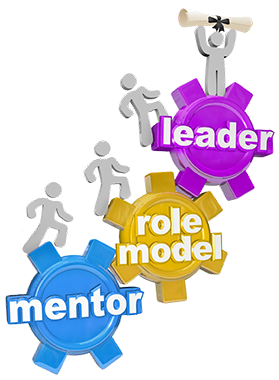This Program Is:
- An annual conference which brings together high school and college students to explore health care issues and prepare for health careers.
- For students who have expressed an interest in a career in the health professions.
- Beneficial in helping mentees gain insight into successful preparation for an application to professional schools.
- Student run.
- Aimed at meeting the long-term objective of increasing underrepresented student representation in health professions programs.
- Set up so that it provides an opportunity for college and high school students to seek advice from mentors enrolled in professional health profession programs.
- Geared so that the network is established which includes the middle school through professional school educational community.
- Designed so that medical, dental, graduate, nursing and allied health students serve as mentors to college and high school students.
- Sponsored by the local chapters of the Student National Medical Association, the Student National Dental Association and the Department of Health Career Opportunity Programs.
The Roles and Functions of a Mentor
To be:
- An advisor.
- A coach.
- A counselor.
- An experienced leader.
- An advocate.
- A patron.
- A role model.
- A guide.
- A sponsor.
- A support system.
- An objective critic.
- A confidante.
- A source of inspiration to the mentee.
- The individual who shows the mentee the ropes.
- There for the mentee.
- Helpful so that the mentee gets used to the particular professional culture.
- The sounding board that the mentee needs to express ideas.
- The support person to the mentee in setting appropriate goals and methods of assessing progress in relation to these goals.
Advantages of Participating in a Mentoring Program
A mentor can help a learner:
- Find useful resources.
- Set realistic targets.
- Plan for personal development.
- Become more self-confident.
- Cope with challenges.
- Learn from experience.
Contact
Kerry-Ann Stewart, Ph.D.
Assistant Director
Department of Health Career Opportunity Programs
UConn Health
263 Farmington Avenue
Farmington, CT 06030-3920
Email: hcop@uchc.edu
Jan Figueroa
Administrative Program Assistant
Department of Health Career Opportunity Programs
UConn Health
263 Farmington Avenue
Farmington, CT 06030-3920
Email: jfigueroa@uchc.edu
This Program Is:
- An annual conference which brings together high school and college students to explore health care issues and prepare for health careers.
- For students who have expressed an interest in a career in the health professions.
- Beneficial in helping mentees gain insight into successful preparation for an application to professional schools.
- Student run.
- Aimed at meeting the long-term objective of increasing underrepresented student representation in health professions programs.
- Set up so that it provides an opportunity for college and high school students to seek advice from mentors enrolled in professional health profession programs.
- Geared so that the network is established which includes the middle school through professional school educational community.
- Designed so that medical, dental, graduate, nursing and allied health students serve as mentors to college and high school students.
- Sponsored by the local chapters of the Student National Medical Association, the Student National Dental Association and the Department of Health Career Opportunity Programs.
The Roles and Functions of a Mentor
To be:
- An advisor.
- A coach.
- A counselor.
- An experienced leader.
- An advocate.
- A patron.
- A role model.
- A guide.
- A sponsor.
- A support system.
- An objective critic.
- A confidante.
- A source of inspiration to the mentee.
- The individual who shows the mentee the ropes.
- There for the mentee.
- Helpful so that the mentee gets used to the particular professional culture.
- The sounding board that the mentee needs to express ideas.
- The support person to the mentee in setting appropriate goals and methods of assessing progress in relation to these goals.
Advantages of Participating in a Mentoring Program
A mentor can help a learner:
- Find useful resources.
- Set realistic targets.
- Plan for personal development.
- Become more self-confident.
- Cope with challenges.
- Learn from experience.
Contact
Granville Wrensford, Ph.D.
Department of Health Career Opportunity Programs
UConn Health
263 Farmington Avenue
Farmington, CT 06030-3920
Email: gwrensford@uchc.edu
Kerry-Ann Stewart, Ph.D.
Department of Health Career Opportunity Programs
UConn Health
263 Farmington Avenue
Farmington CT 06030-3920
Email: kestewart@uchc.edu
Jan Figueroa
Department of Health Career Opportunity Programs
UConn Health
263 Farmington Avenue
Farmington, CT 06030-3920
Email: jfigueroa@uchc.edu
Bridge to the Future Science Mentoring Virtual Conference
Thinking of a Career in the Health Field?
Come join us at our annual interactive conference for college students.
Saturday, April 22, 2023
10 a.m. to 1:30 p.m.
